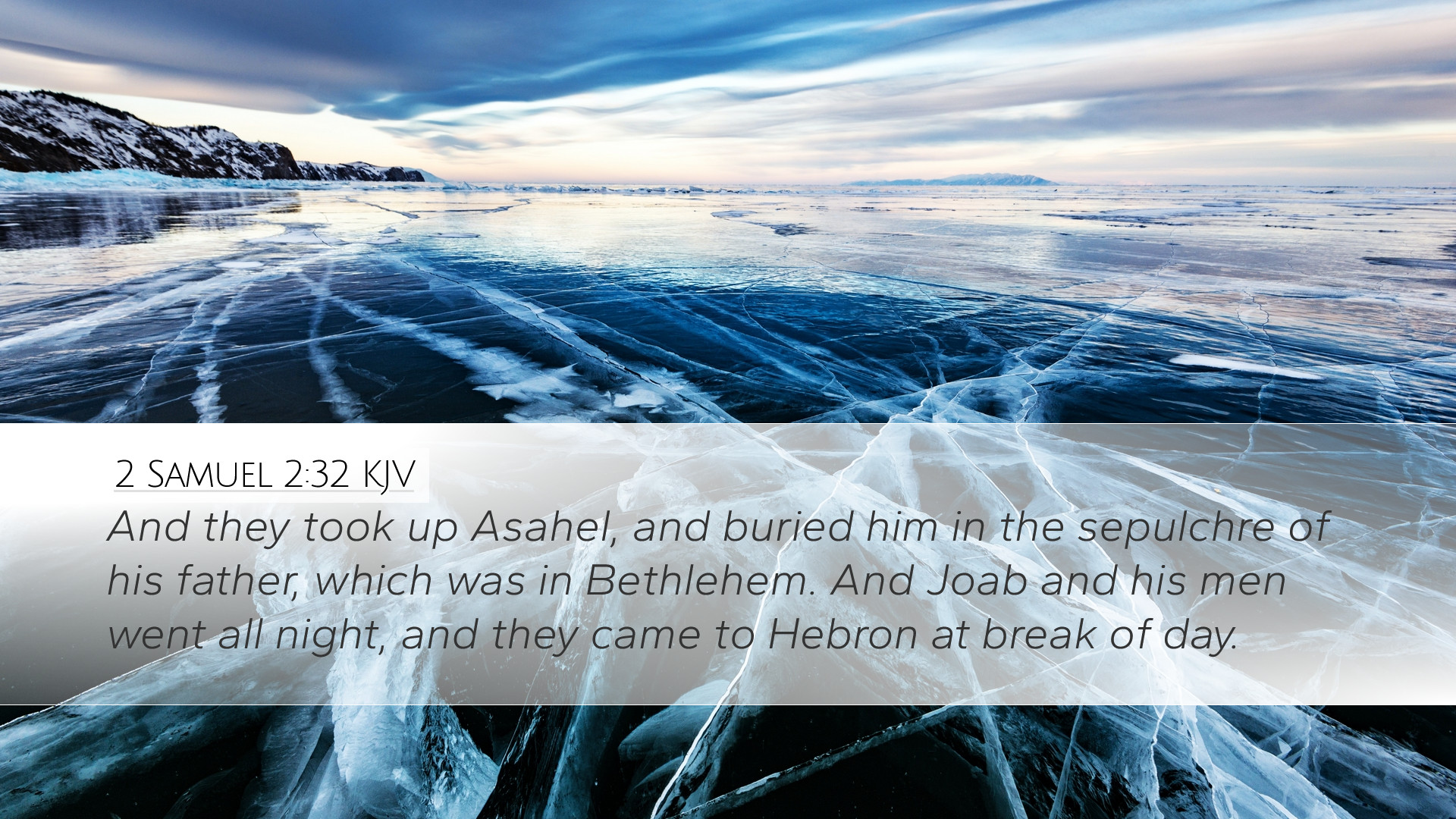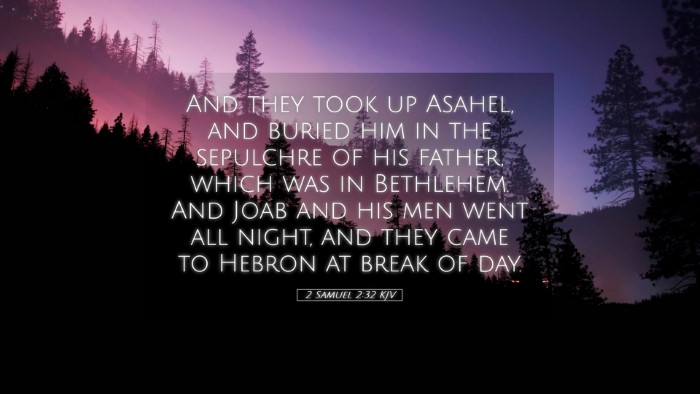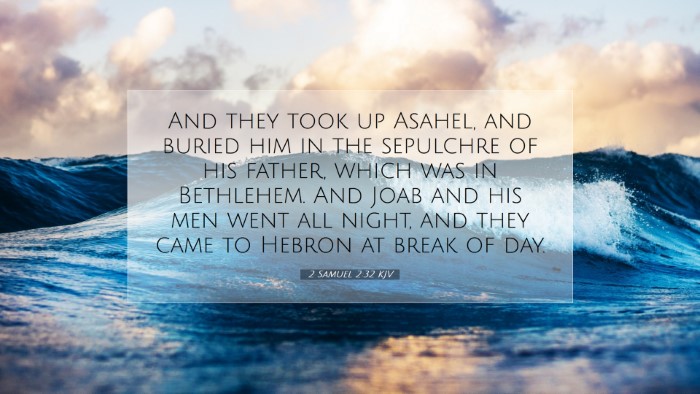Commentary on 2 Samuel 2:32
Verse Reference: 2 Samuel 2:32 - "And Abner and the men of Benjamin gathered themselves together, and went to the hill of Ammah."
Contextual Background
This verse is pivotal in the narrative of the burgeoning conflict between the house of Saul and the house of David. Following the death of Saul, Abner, commander of Saul's army, seeks to consolidate his power and influence during a time of political instability. While the nation of Israel is divided, David is growing in strength in Hebron. The strategic movements of Abner and his accompanying men highlight the tensions and inevitable conflict that will subsequently unfold in Israel.
Insights from Public Domain Commentaries
Matthew Henry's Commentary
Leadership and Influence: Henry emphasizes Abner’s critical role as a military leader and the implications of his allegiance to the house of Saul. He notes that Abner’s decision to gather the men of Benjamin indicates a significant act of defiance against David. The hill of Ammah signifies a place where Abner seeks refuge and possibly strategizes to fortify his position. Henry points out that Abner’s actions reveal the desperate attempts to maintain control and authority amidst a shifting political landscape.
Albert Barnes' Notes on the Bible
Geographical Significance: Barnes provides insight into the geographical location of the hill of Ammah, suggesting it as a strategic point for military gathering. He notes that the usage of the term 'gathered themselves together' shows a mobilization of forces, indicating preparation for potential conflict. The choice of this location can be interpreted as a tactic to assert sovereignty and rally support. Moreover, Barnes highlights how Abner's efforts illustrate the challenges David faces, as well as the dynamics of factionalism in Israel.
Adam Clarke's Commentary
Theological Reflections: Clarke delves into the theological implications of Abner's actions. He suggests that Abner's rebellion against divine anointing, represented by David, reveals the complexities of human ambition versus divine will. He points out that while Abner may have intentions of preserving the legacy of Saul, ultimately such actions would lead to his downfall. Clarke posits that the gathering at the hill of Ammah serves as a stark reminder of the futile human attempts to oppose God’s ordained plans. This raises important questions about loyalty, leadership, and the struggle between divine providence and human action.
Thematic Considerations
- Conflict and Division: This verse encapsulates the themes of internal conflict and division within Israel. Abner's gathering of men not only signifies military preparedness but also the fracture that will lead to civil war.
- Leadership Dynamics: The leadership of Abner stands in contrast to that of David, providing a study of leadership styles and their impact on followers.
- Divine Sovereignty vs Human Free Will: The narrative prompts reflection on how God’s plans incorporate human decisions, often leading to unintentional fulfillment of His purposes.
Application for Modern Readers
For pastors, theologians, and students of Scripture, this verse and its context offer profound insights into the nature of leadership, the inevitability of conflict in the pursuit of power, and the perseverance required in the face of opposition. It serves as a reminder to remain vigilant in understanding the currents of political, social, and spiritual dynamics in our communities today.
Furthermore, reflecting on Abner’s decisions may encourage modern leaders to weigh their ambitions against the will of God, advocating for humility and alignment with divine purposes. The conflict between Abner and David ultimately reveals the sovereignty of God in the unfolding history of Israel, echoing the truth that God’s plans will prevail despite human opposition.
Conclusion
2 Samuel 2:32 stands as a significant marker in the history of Israel’s monarchy and provides rich material for theological reflection. The insights drawn from the commentaries of Matthew Henry, Albert Barnes, and Adam Clarke illuminate this verse, emphasizing the importance of understanding leadership, conflict, and divine providence. As we study this passage, may it challenge our perspectives and encourage us in our spiritual journeys.


